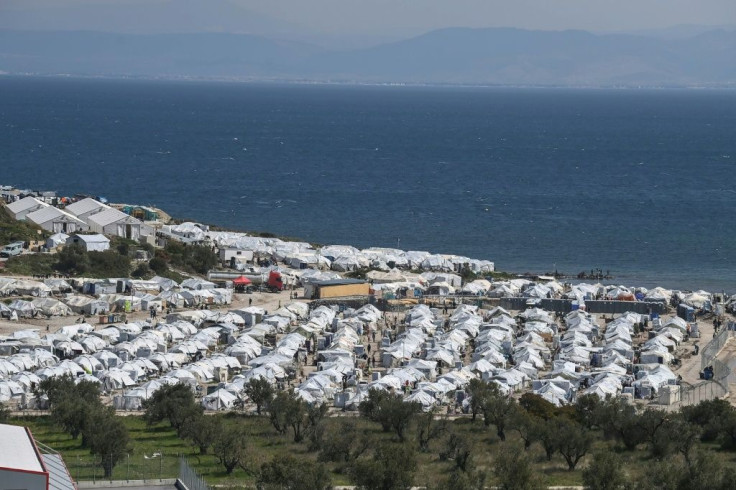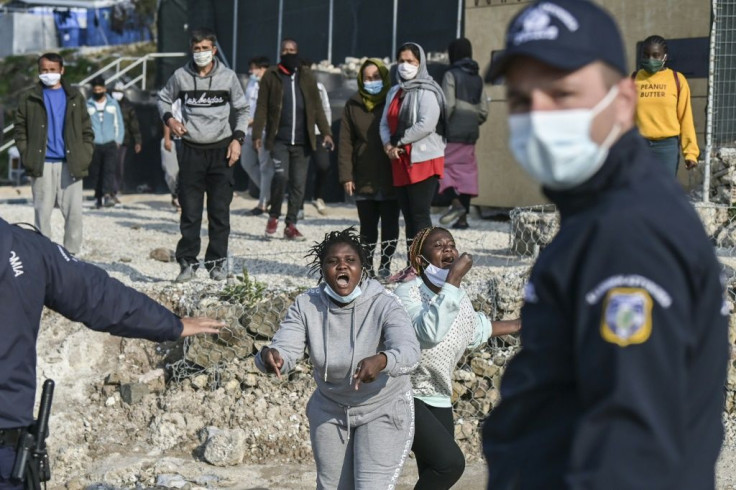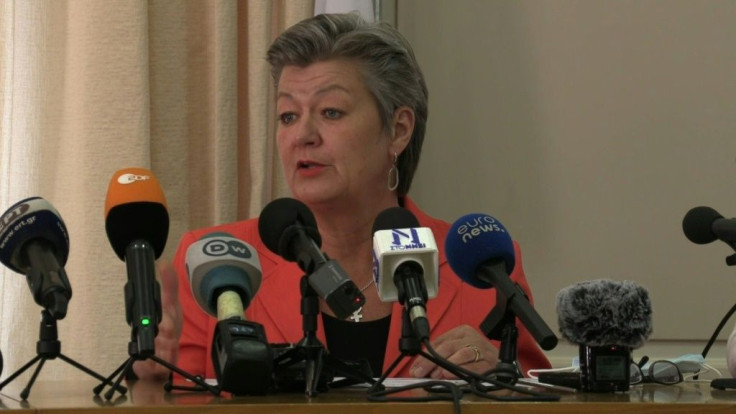'2nd-class Citizens': Migrant Camp Plans Angers Lesbos Islanders
On the Greek island of Lesbos, the notorious camp of Moria still casts a long shadow, more than six months after it went up in flames.
And after six years of being on the frontline of migratory pressure from nearby Turkey, many locals are exasperated by plans for a new permanent camp there built with EU funds.
"Instead of Europe standing by us in solidarity (they) think this is where they will cage all migrants that come," says Erifili Yiannaka, a local councillor on Lesbos.
"Our island needs to find again its rhythm the way it was," she told AFP on the sidelines of an anti-camp demonstration in the island port capital of Mytilene this week.

During a visit to the island by EU home affairs commissioner Ylva Johansson, some 300 people gathered outside the regional governor's office to voice their opposition Monday.
"We are not second-class European citizens," said Mytilene resident Christina Kourtzi.
Regional governor Costas Moutzouris is among the camp's most vocal opponents.
"The islanders will not allow the construction of permanent camps on Greek and European borders," he said in a statement.

At the height of the migration crisis in 2015, Lesbos saw a surge of hundreds of thousands, most of them refugees fleeing the civil war in Syria.
Many were crammed into Moria, which swiftly became Europe's largest camp and a byword for squalor, violence and crime.
On the site of the camp's remains, there are now only ashes, burnt plastic bottles, charred trees, gutted containers and personal items abandoned as its inhabitants fled the September 2020 fire.

Even after months of refugee transfers to the Greek mainland and to other EU states, there are still more than 8,000 asylum seekers on Lesbos, including 6,000 survivors of the Moria camp fire.
For the past seven months, they have been living in a makeshift tent camp on the coastal hillside of Mavrovouni, a former military firing range not far from Moria.
"We understand the point of view of the people of the islands," Greek Migration Minister Notis Mitarachi told a news conference Monday, insisting that the Mavrovouni camp was temporary.
The European Union has allocated 276 million euros ($325 million) for the construction of new camps on Lesbos and four other Aegean islands -- Chios, Samos, Kos and Leros.
The new camps would be much more organised, "with less pressure on the local community", the minister vowed.
"I can understand that everybody has a limit to their patience... this limit is close, also here on Lesbos and in some other areas," Johansson told journalists.
The site chosen for the new camp lies in the middle of limestone hills and olive groves, more than half an hour's drive from the port capital.
The distance from inhabited areas is already a source of concern for migrants. Trips into town were a way to break the boredom of waiting for months for asylum requests to be processed.
And at Mavrovouni, they could bathe and wash their clothes.
One young livestock owner told AFP that he had 30 goats and sheep stolen since migrants moved to Mavrovouni.
"These people are not hungry since they are fed, but they keep coming and steal our animals," said the man, who declined to give his name.
© Copyright AFP 2024. All rights reserved.





















